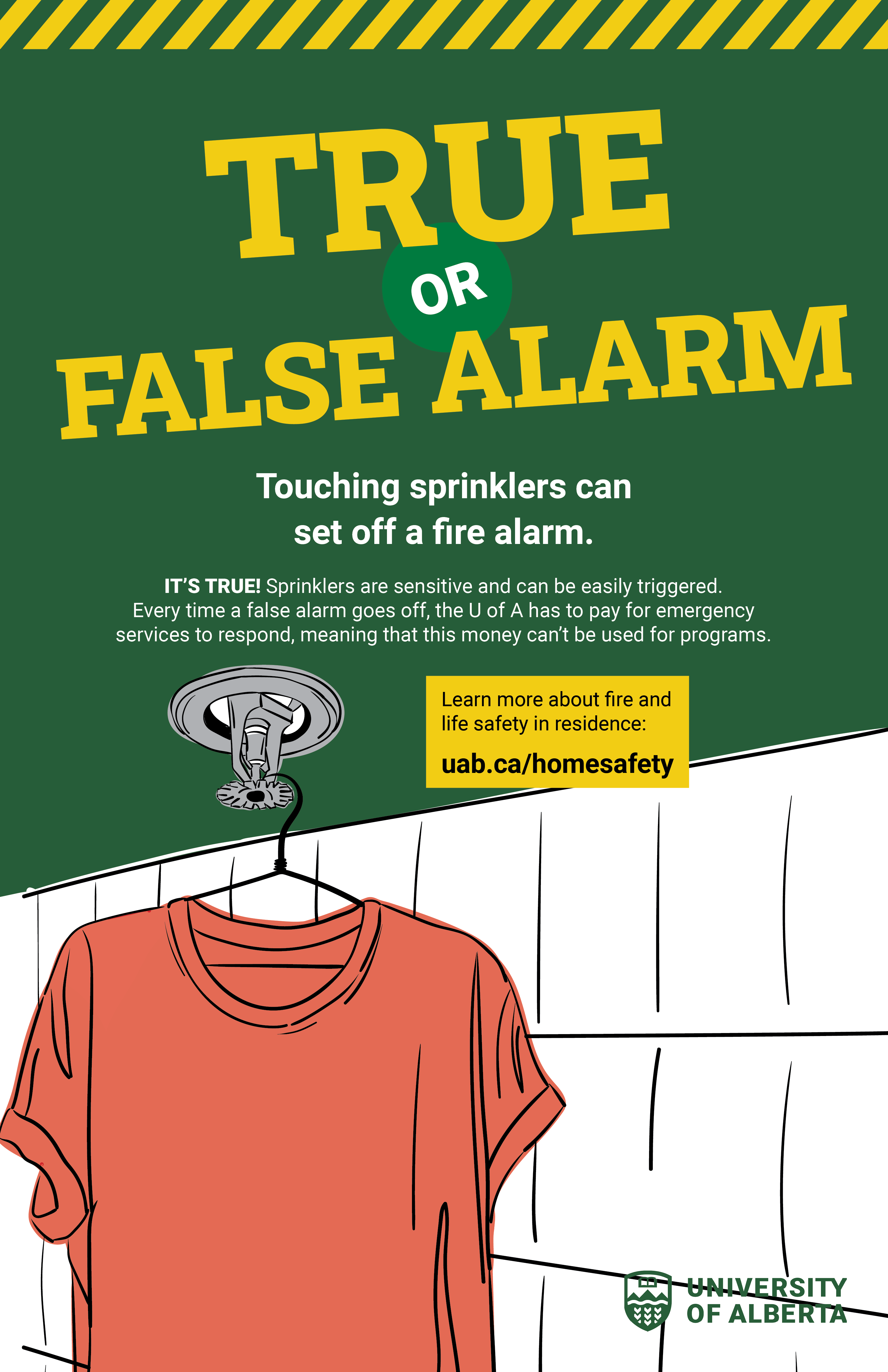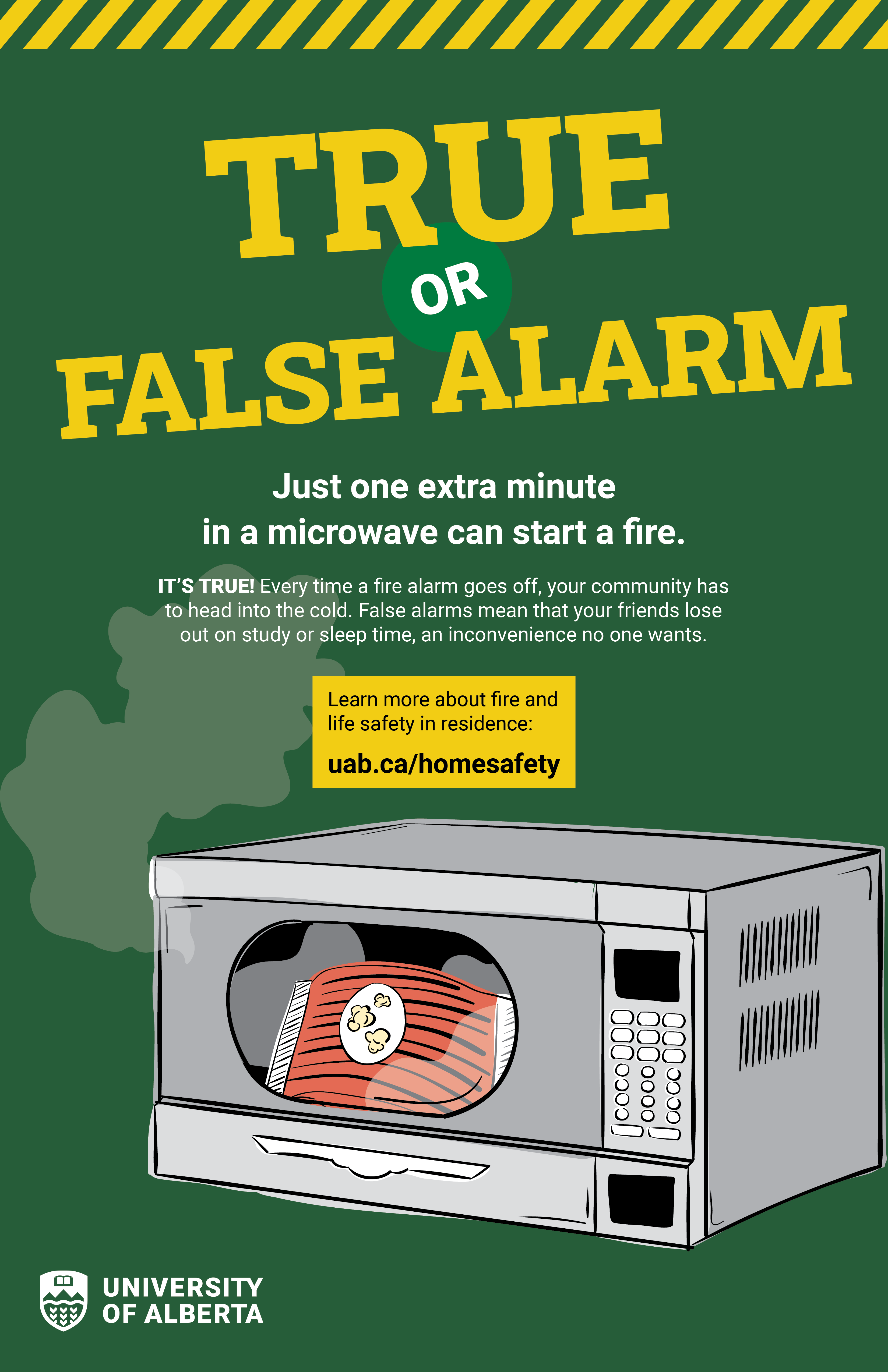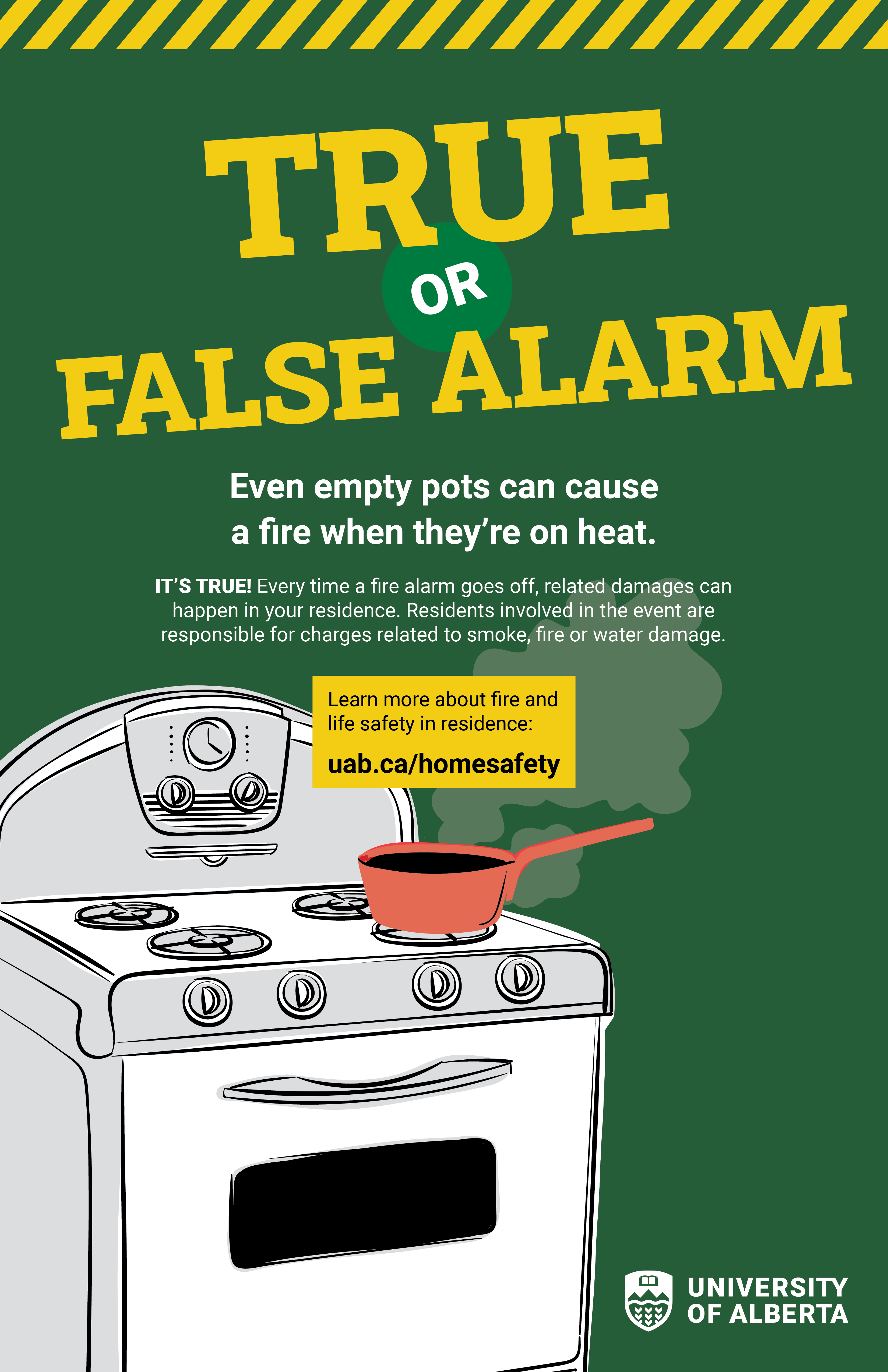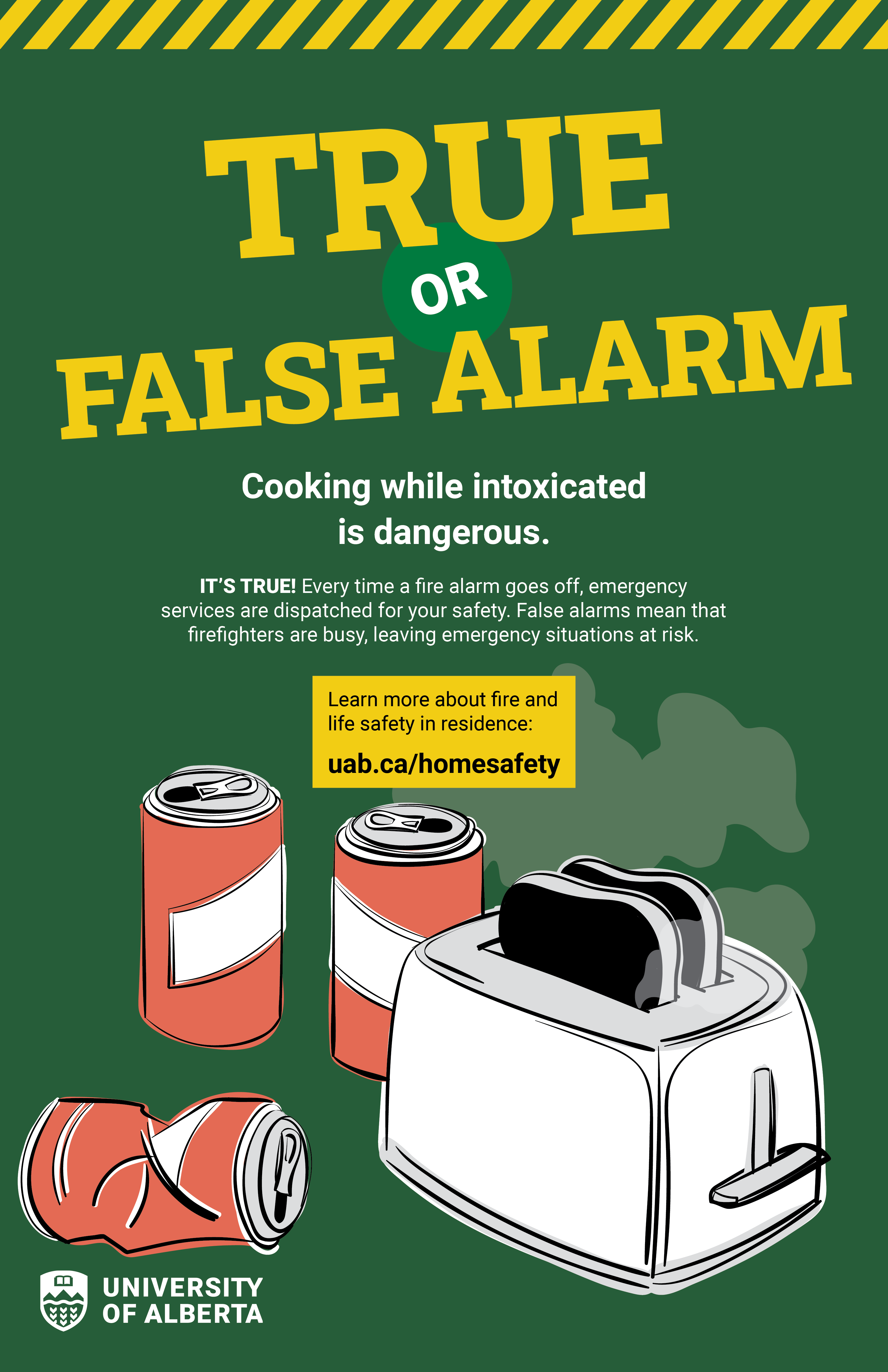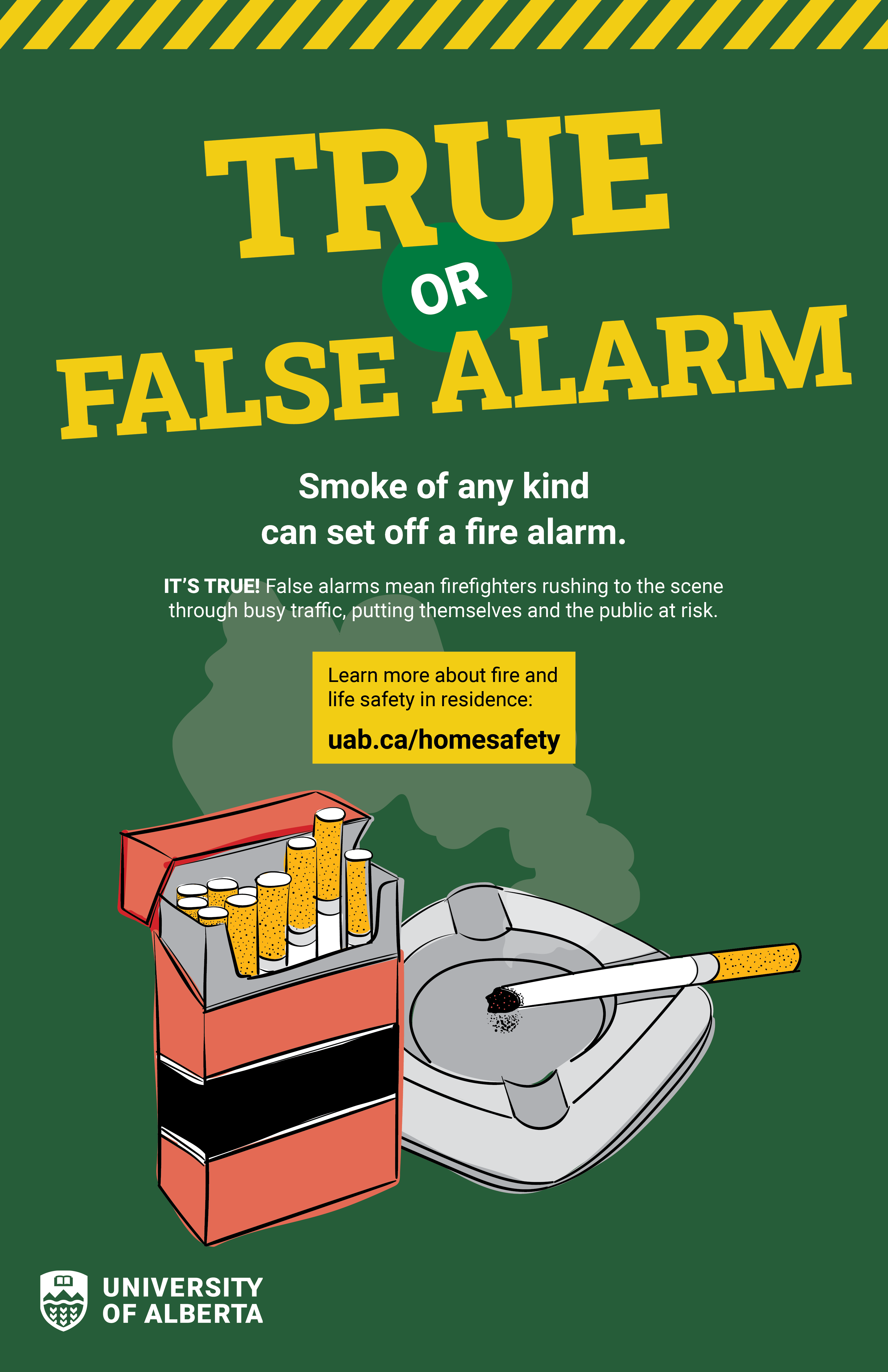Fire and Life Safety
On this page: Security + Theft Prevention | Residence Emergency Response Plan | Fire Safety
SECURITY + THEFT PREVENTION
Residences are a very secure place to live, but thefts can occur. Prevent yourself from being a victim:
- Always lock your door when leaving your room, apartment or house for any length of time.
- Don’t leave belongings unattended in common and public areas
- Don’t let anyone follow you into a ONEcard-accessible building. It’s not rude, it’s safe. If they live there, they should have their ONEcard or they can request lockout assistance.
- Ensure your visitors buzz into the building rather than expect other students to let them in.
- Never lend your ONEcard or keys to a friend.
- Meet your food delivery person at the door promptly so your food isn’t left unattended.
- If you notice someone in the building who appears confused, approach them and ask if they need assistance or contact RAs on Shift. Report a suspicious person to Protective Services 780-492-5050.
- If a theft occurs, report it to Protective Services promptly
Residence Emergency Response Plan
It’s always best to be prepared for the worst case scenario. View the appropriate response to potential emergencies that may occur in residence.
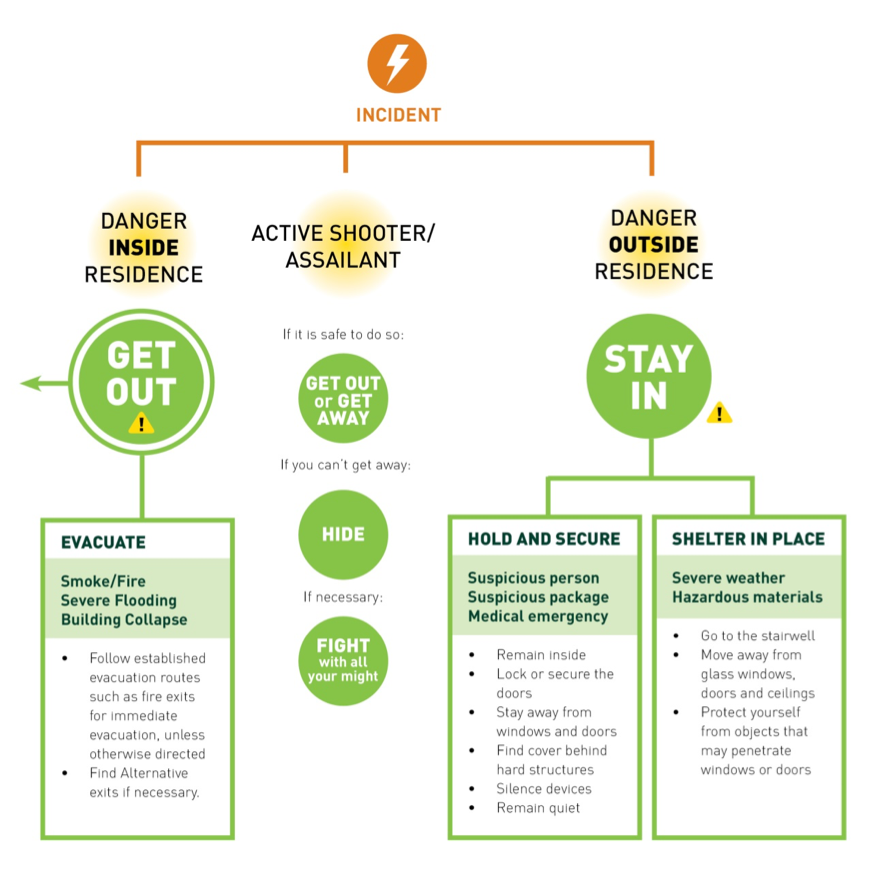
Fire Safety
Alarms
Fire alarms may sound differently depending on which residence you live in. Familiarize yourself with the sound of different fire alarms.
You MUST leave the building even if you believe the alarm is a drill – it may not be. Do not return to the building until emergency services have given permission to return.
Signage
When you hear a fire alarm, immediately follow the directions on the nearest emergency evacuation signage to your building muster point. You can usually find these on the interior of your unit door or near an elevator.
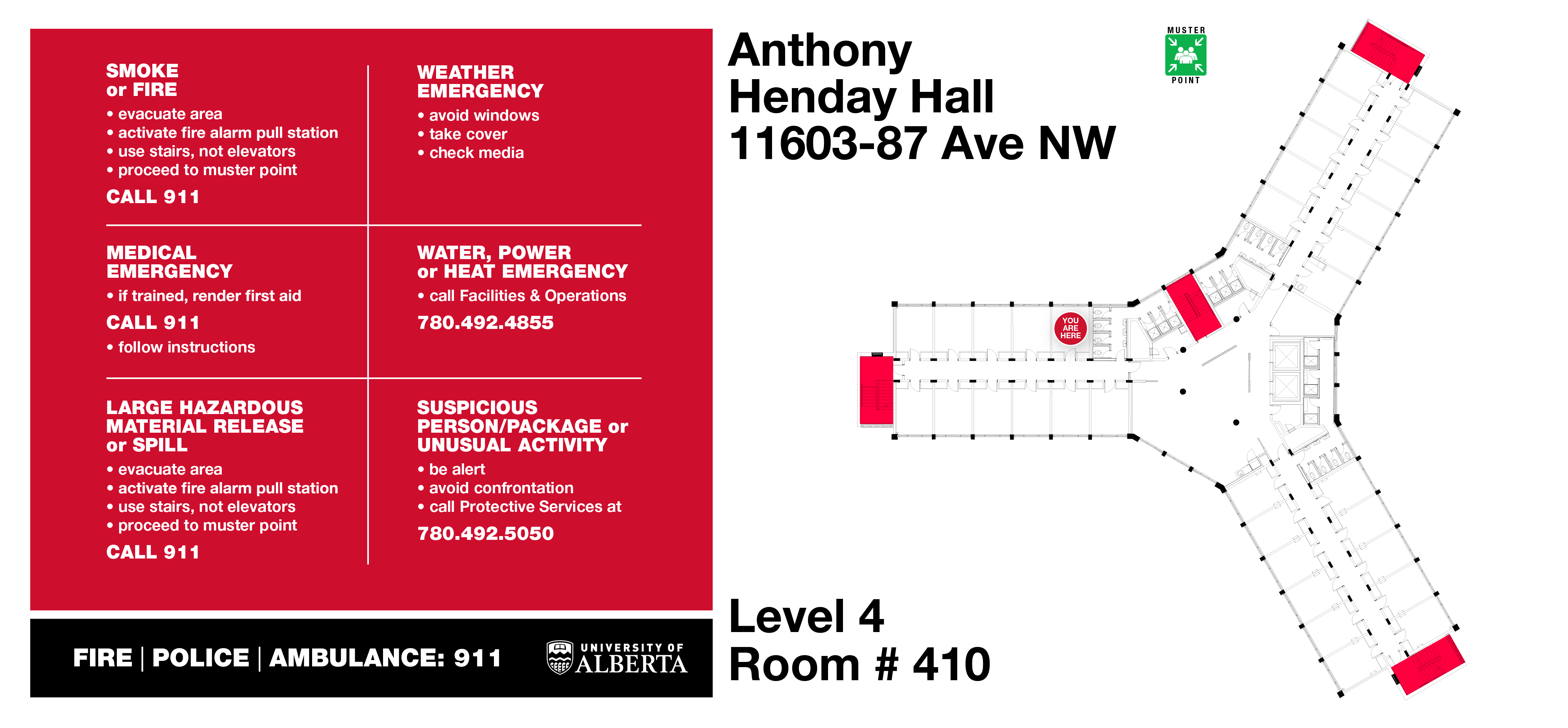 Example of emergency exit signage.
Example of emergency exit signage.
Fire and Safety Equipment
Fire and safety equipment (smoke detectors, pull stations, sprinklers, fire hoses, extinguishers, etc.) are there for your protection. Tampering with them can result in many consequences, even expulsion from the university or criminal charges.
Safety tips from Residence Maintenance
- Notice where the fire exits are in your unit and don’t block them with furniture or belongings.
- If the smoke alarm in your unit begins to indicate a malfunction with continuous beeping, please submit a maintenance request immediately for the battery to be replaced.
- Distribute your electronics to various outlets, rather than overloading a single one.
- Don't plug a power bar into another power bar or connect several extension cords. Buy a cord that is long enough for what you need it for.
- Do not use power bars with high-draw appliances.
- Try to only use one high-draw item at a time. (E.g. microwave, hair dryer, gaming computer)
- The special GFCI electrical receptacles next to a sink can be reset by pushing a button on their face.
- Keep furniture and personal belongings away from the baseboard heaters.
- Close windows in sub-zero temperatures as it can lead to frozen and/or burst pipes in your unit. These floods can damage all your belongings and require long-term remediation, forcing you and your neighbors to move.
Items not permitted in residence
- Furniture (unless you are moving into an unfurnished apartment)
- Candles, incense, fireworks, sparklers, etc.
- Guns, knives, weapons, or replica weapons, including air guns, paintball guns, and ammunition
- Room heating devices (space heaters) or alcohol lamps
- Air conditioners
- Hazardous chemicals and flammable substances
- Extension cords over six feet in length
- Pets (see Inclusion and Accommodations for service animal exceptions)
- Illegal substances
- Speaker systems
- Cooking and heating appliances such as microwaves, coffee makers, hot plates, toasters, toaster ovens, deep fryers, rice cookers and pressure cookers.
- Cooking appliances are only allowed in apartments and shared kitchens, NOT dorm rooms. These items are fire hazards and having them would be considered a breach of your Residence Agreement.
True oR False Alarm
False alarms impact you and your neighbours
Every time a false fire alarm goes off:
- emergency services are dispatched to the scene, leaving emergency situations at risk.
- emergency services rush to the scene, putting themselves and others on the road at risk.
- the U of A has to pay for the emergency services, reducing money for programming.
- your community has to go outside, regardless of the weather, and lose out on study or sleep time.
- the responsible student will be held accountable for related smoke, fire or water damage.
Fire + Life Emergencies
Call 911
Then call U of A Protective Services at 780-492-5050
